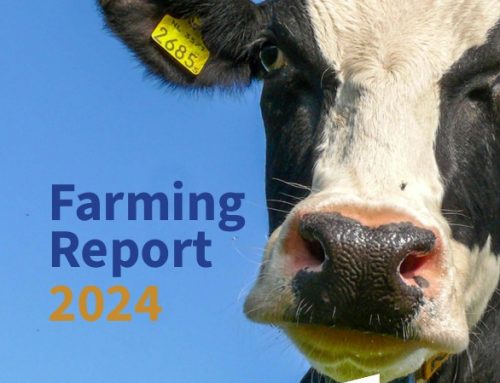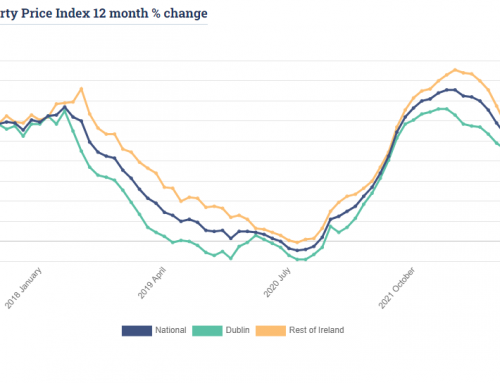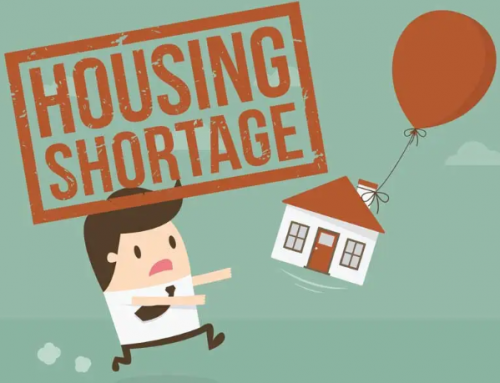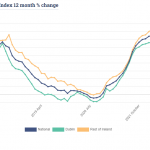ASK ANYONE WHO has gone through the process of buying a home and it is highly likely that ‘stressful’ will be the word they use to describe it.
A house is probably the most expensive thing you will ever buy, mortgages are a minefield and the legalities of the process can be drawn-out and expensive.
Variables beyond your control may also arise, so take the time beforehand to arm yourself with as much knowledge as possible.
Here are some tips for making it all run smoothly.
Before you do anything, find out what you can borrow
Most banks have mortgage calculators on their websites, but you will have to sit down with a mortgage advisor to to find out the real figure you can borrow. Go into that meeting with all the documents you need to make the process as swift as possible.
The Central Bank has rules around deposits and how much you can borrow, which you can find out about here. First-time buyers may also benefit from the new scheme announced in the recent budget.
The advice from Daft.ie is to shop around. Don’t accept the first mortgage offer you get – see what other lenders have to say.
Clean up your act
When applying for a mortgage you will need to hand over six months, or sometimes a year’s worth of bank statements. They will be pored over by the lenders so it’s a good idea to cut out any outgoings that they might query, like payments to gambling websites for example.
Easier said that done to be sure, but if you are a smoker you should quit. The cost of life assurance is often a lot more for smokers. Also, you know, it’s bad for you.
Get good at filing – and buy a folder
There will be a lot of documentation associated with your mortgage and the whole buying process, so keep them all in one place. Make a checklist of what is needed for each step so you don’t end up facing delays because you have to wait until you find the documents. You should also keep photocopies of the documents you hand over.
Budgeting for fees
It’s not just mortgage repayments and a deposit that you have to factor into your spend – there are additional fees associated with buying a house. Find out from the lender what fees they charge so you can budget for them. You will also have to factor in solicitor fees, Stamp Duty, a valuation report and both home insurance and life assurance.
It is also a good idea to shop around for life assurance before you even apply for a mortgage, as it can sometimes take quite a while to sort out if there are any health issues in your past. It’s worth knowing that you can’t finalise the sale until it’s in place.
Location, location, location
If you come across a property that you think you want to buy find out everything you can about the area. As well as going to viewings you should walk the area, check out the local amenities, schools, public transport. It’s worth finding out if there are any future local development plans which could affect your property either positively or negatively.
Bidding is stressful
Once you have found the property you love, you have viewed it a few times (not always possible!) and have placed your bid, then the really hard part starts. It turns out that others will also want YOUR house and you will have to fight them for it. When the bidding goes beyond your budget it is soul-destroying, but it doesn’t necessarily mean all is lost. Sometimes winning bids fall at the last fence and estate agents go back to those who bowed out earlier in the race to see if they are still interested.
Patience is a virtue…
“Arm yourself with patience,” is good advice for the whole buying process. There can be many hurdles along the way, some beyond your control, (probate, anyone?) so best to take a deep breath and get on with your life while you wait.
Get a survey
A seller is under no obligation to disclose defects in a property, so it’s a good idea to get a survey report even if the bank does not require one for a particular property. If you are buying an old secondhand house, the bank is likely to demand a survey is carried out. The Society of Chartered Surveyors Ireland is the professional body for chartered surveyors.
Keep up the good work
Once a mortgage application is approved, it has a ‘use-by’ date, usually 3-6 months. If you don’t draw down your mortgage during that time then you will have to reapply. That means handing over up-to-date bank statements, so that good behaviour you adopted before applying for your loan should be maintained right up until you draw it down. If any other circumstances, like your job, change in the meantime you may lose your loan.
Signing contracts
Your solicitor will handle this for you but it is up to you to carry out all of the checks on the property to make sure it is up to scratch and that everything included in the contract is there. There are lots of documents and jargon involved at this point, so the advice from Daft.ie is don’t be afraid to ask questions if something isn’t clear.
Before moving in
If you are shopping for furniture and other bulky items before you get the keys, make sure you have somewhere to put them. Better still, buy from places that can keep them in their warehouse for long periods in order to avoid storage headaches, especially when delays to moving in happen.
Moving in
Once you have signed your Loan Offer letter, gotten your house insurance and life assurance, and drawn down your mortgage, it’s finally time to get your hands on the keys to your new home. Don’t forget to read all the meters and contact the utility companies to get yourself set up.
Also, make sure you see that first mortgage payment leave your bank account on the specified date, because it will be lodged as a missed repayment on your credit history if it fails to go out for some reason.
Most importantly, enjoy your new home!
Article by Jennifer Ryan – The Journal.ie








